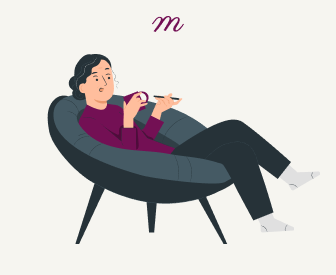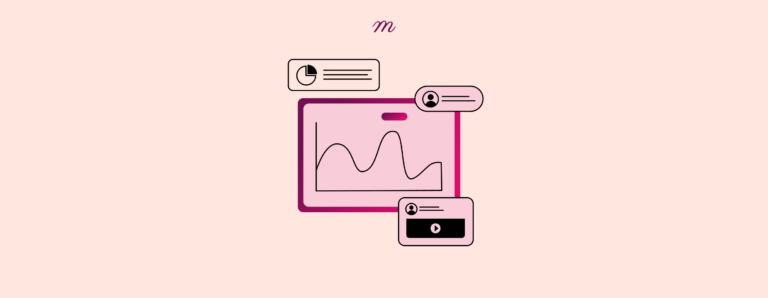Have your progress notes written for you automatically
Considered a gold standard in therapy, CBT (Cognitive Behavioral Therapy) empowers psychologists and individuals alike. Though built on simple ideas, CBT can spark significant positive change. This article delves into the core of CBT, its mechanisms, and how you can harness its principles for personal growth or to guide your clients.
How Can Therapy Worksheets Be Useful for Mental Health Professionals?
As a mental health professional, it can be helpful to have a range of resources at your disposal to support your clients and enhance your practice. Worksheets and other materials can be useful for engaging clients, tracking progress, and reinforcing key concepts. In this article, we’ll be exploring a variety of therapy resources available to psychotherapists, including CBT resources, cognitive distortion worksheets, and therapy worksheets.
What are the best Cognitive-Behavioral Therapy Resources?
CBT, or cognitive-behavioral therapy, is a popular evidence-based treatment approach that focuses on the connection between thoughts, feelings, and behaviors (Mansell, 2008). There are many resources available to help psychotherapists incorporate CBT into their practice, including worksheets, exercises, and handouts.
Some examples of CBT resources include:
- Cognitive distortion worksheets These worksheets can help clients identify and challenge negative thinking patterns, such as all-or-nothing thinking and overgeneralization. (Shirk et al, 2013)
- Exposure hierarchy worksheets These worksheets can help clients create a list of feared situations, ranked by their level of anxiety, to use in exposure therapy. (Bogreat et al, 2009)
- Behavioral experiment worksheets These worksheets can help clients test out new behaviors and evaluate the results, as a way of challenging negative beliefs and building new skills. (Bennett-Levy, 2003)
What kind of worksheets can therapists use in their work?
Therapy worksheets can be useful for a wide range of mental health issues and treatment approaches. Therefore, they should not be omitted as valuable tools for mental health professionals. A 2021 paper regarding PTSD patients had proven worksheets as a useful asset regarding behavioral changes. (Stirman et al)
Some examples of therapy worksheets include:
- Mood tracking worksheetsThese worksheets can help clients track their moods over time, which can be useful for identifying patterns and triggers. (Schueller et al, 2021)
- Thought record worksheets These worksheets can help clients challenge negative thoughts and identify more balanced perspectives. (De Oliveira, 2007)
- Goal-setting worksheets These worksheets can help clients set and track progress toward specific goals, which can be a helpful way of staying motivated and on track. (Stock, Cervone, 1990)
Are there any other useful apps for mental health professionals?
There are many tools available to mental health professionals to help support their work with clients. In addition to worksheets, some other examples of apps for mental health professionals include:
- Practice management apps Apps like Simple Practice, and Therapy Notes can help streamline scheduling, billing, and progress notes.
- Note-taking apps Apps like NoteDesigner, ICANnotes, and Mentalyc can help therapists take more organized and structured notes, which can be useful for tracking progress and identifying patterns.
- Self-care resourcesTools like mindfulness apps and online self-care courses can help mental health professionals prioritize their well-being and avoid burnout.
Overall, there are many resources available to mental health professionals to support their work with clients and enhance their practice. Consider exploring some of these resources to see how they might be useful for you and your clients.
References
- Mansell, W. (2008). What is CBT really and how can we enhance the impact of effective psychotherapies such as CBT? Against and for CBT: Towards and constructive dialogue, 19-32.
- Shirk, S. R., Crisostomo, P. S., Jungbluth, N., & Gudmundsen, G. R. (2013). Cognitive mechanisms of change in CBT for adolescent depression: Associations among client involvement, cognitive distortions, and treatment outcome. International Journal of Cognitive Therapy, 6 (4), 311-324.
- Borgeat, F., Stankovic, M., Khazaal, Y., Rouget, B. W., Baumann, M. C., Riquier, F., … & Bondolfi, G. (2009). Does the form or the amount of exposure make a difference in the cognitive-behavioral therapy treatment of social phobia? The Journal of nervous and mental disease, 197 (7), 507-513.
- Bennett-Levy, J. (2003). Mechanisms of change in cognitive therapy: The case of automatic thought records and behavioural experiments. Behavioural and Cognitive Psychotherapy, 31(3), 261-277.
- Stirman, S. W., Gutner, C. A., Gamarra, J., Suvak, M. K., Vogt, D., Johnson, C., … & STRONG STAR Consortium. (2021). A novel approach to the assessment of fidelity to cognitive behavioral therapy for PTSD using clinical Worksheets: a proof of concept with cognitive processing therapy. Behavior therapy, 52(3), 656-672.
- Schueller, S. M., Neary, M., Lai, J., & Epstein, D. A. (2021). Understanding People’s Use of and Perspectives on Mood-Tracking Apps: Interview Study. JMIR mental health,8(8), e29368. https://doi.org/10.2196/29368
- De Oliveira, I. R. (2007). Sentence-reversion-based thought record (SRBTR): a new strategy to deal with “yes, but…” dysfunctional thoughts in cognitive therapy. European Review of Applied Psychology,57(1), 17-22.
- Stock, J., & Cervone, D. (1990). Proximal goal-setting and self-regulatory processes. Cognitive therapy and research,14(5), 483-498.









